Description
Workman Peak, towering at an elevation of 5885 meters, is a striking mountain situated in the Karakoram Range of Pakistan. Named after the American geologist and explorer Dr. Francis Workman, this peak offers a challenging and rewarding mountaineering experience for adventurers seeking to conquer its lofty summit.
A climbing expedition to Workman Peak typically includes a comprehensive package of services and support to ensure the safety, comfort, and success of the climbers. Here’s what such a trip might include:
1. Experienced Guides: Professional mountain guides with extensive experience in the region who are knowledgeable about the climbing routes, terrain, and weather conditions.
2. Permits and Logistics: Arrangements for necessary climbing permits, liaison officers, and logistical support such as transportation to and from the mountain base.
3. Climbing Equipment: Provision of technical climbing gear, including ropes, harnesses, helmets, ice axes, crampons, and other necessary equipment. However, climbers may need to bring personal gear such as clothing and footwear.
4. Accommodation: Accommodation arrangements before and after the climb, which may include hotels or guesthouses in nearby towns or cities.
5. Base Camp Services: Set-up and support services at the base camp, including tents, dining facilities, cooking equipment, and support staff such as cooks and porters.
6. High Altitude Porters: The option to hire high altitude porters to assist with carrying gear and supplies between base camp and higher camps.
7. Food and Catering: Provision of meals and catering services during the expedition, with an emphasis on nutritious and energy-rich food to fuel climbers during their ascent.
8. Medical Support: Access to basic medical supplies and emergency medical assistance, including trained staff and evacuation plans in case of accidents or altitude-related illnesses.
9. Communication: Communication facilities such as satellite phones or radios to maintain contact with base camp and emergency services if needed.
10. Environmental Practices: Adherence to responsible and sustainable climbing practices, including waste management and Leave No Trace principles to minimize the environmental impact of the expedition.
11. Weather Monitoring: Regular weather updates and forecasts to help plan climbing activities and ensure the safety of the climbers.
12. Training and Briefings: Pre-expedition briefings, orientation sessions, and training on technical climbing skills, safety procedures, and high altitude acclimatization.
Overall, a climbing expedition to Workman Peak is a meticulously planned and supported endeavor, designed to provide climbers with the best possible chance of success while prioritizing safety and responsible mountaineering practices.
What to Expect
Embarking on a climbing expedition to Workman Peak promises a mix of challenges, adventure, and unforgettable experiences. Here’s what you can expect from this trip:
1. Physical and Mental Challenge: Climbing Workman Peak involves navigating challenging terrain, including steep slopes, rocky ridges, and icy conditions. You’ll need to be physically fit and mentally prepared to face the demands of high-altitude climbing.
2. Technical Climbing: Expect to use advanced mountaineering skills such as rock and ice climbing techniques, rappelling, and belaying as you ascend Workman Peak. The route may require the use of technical gear such as ropes, harnesses, crampons, and ice axes.
3. Breathtaking Scenery: Workman Peak offers stunning views of the surrounding Karakoram Range, including snow-capped peaks, glacier-carved valleys, and pristine alpine landscapes. The beauty of the natural surroundings will inspire and awe you throughout the expedition.
4. Sense of Accomplishment: Summiting Workman Peak is a significant achievement that rewards climbers with a profound sense of accomplishment and pride. Standing atop the peak and taking in the expansive views is a moment you’ll never forget.
5. Teamwork and Camaraderie: Climbing expeditions foster a strong sense of camaraderie and teamwork among team members. You’ll form close bonds with your climbing partners as you work together to overcome obstacles and achieve your common goal of reaching the summit.
6. High Altitude Experience: Climbing Workman Peak will take you to high altitudes where the air is thin and oxygen levels are lower. You’ll need to acclimatize properly to avoid altitude sickness and other altitude-related issues.
7. Cultural Immersion: Exploring the Gilgit-Baltistan region of Pakistan offers opportunities to immerse yourself in the local culture and interact with the friendly people who call the mountains home. You’ll gain insights into their way of life, traditions, and customs.
8. Adventure and Exploration: Climbing Workman Peak is an adventure-filled journey into the heart of the Karakoram Range. You’ll embark on an expedition of discovery, exploring remote valleys, crossing glaciers, and experiencing the thrill of high-altitude mountaineering.
Overall, a climbing expedition to Workman Peak promises an unforgettable adventure filled with challenges, triumphs, and moments of awe-inspiring beauty. It’s an experience that will push your limits, broaden your horizons, and leave you with memories to last a lifetime.
Tips for the Trek
- Physical Preparation: Ensure you are physically fit for high-altitude trekking and climbing. Regular exercise and acclimatization are essential.
- Packing Essentials: Bring warm clothing, sturdy trekking boots, a sleeping bag, a tent, and a first aid kit. Don’t forget sunscreen and a hat.
- Hydration and Nutrition: Carry enough water and high-energy snacks. Hydration is crucial at high altitudes.
- Local Guides: Hiring a local guide can enhance your experience and ensure safety.
- Respect Nature: Follow the Leave No Trace principles to keep the environment pristine.
This trek offers a unique opportunity to explore the natural beauty and challenging terrain of the Karakoram Range. If you need more details or assistance in planning your trek, feel free to ask!
Climbing Workman Peak (5885m) in the Karakoram Range is a challenging and rewarding adventure. To ensure a safe and successful climb, here are some essential safety precautions to keep in mind:
1. Physical Preparation
- Fitness: Ensure you are in excellent physical condition. Regular cardiovascular and strength training exercises are crucial.
- Acclimatization: Spend a few days at high altitudes before attempting the climb to acclimatize and reduce the risk of altitude sickness.
2. Proper Gear and Equipment
- Climbing Gear: Use high-quality climbing gear, including ropes, harnesses, carabiners, and ice axes. Double-check all equipment before the climb.
- Clothing: Wear layered clothing suitable for extreme cold and changing weather conditions. Include thermal wear, waterproof jackets, and insulated gloves.
- Footwear: Invest in sturdy, insulated climbing boots with good ankle support.
- Helmet: Always wear a climbing helmet to protect against falling rocks and ice.
3. Weather Awareness
- Weather Forecasts: Monitor weather conditions closely. Avoid climbing during bad weather, as it can increase the risk of avalanches and other hazards.
- Temperature Fluctuations: Be prepared for sudden temperature changes and high winds.
4. Risk Management
- Hazard Identification: Conduct a thorough risk assessment before the climb. Identify potential hazards such as loose rocks, unstable terrain, and crevasses.
- Avalanche Awareness: Understand avalanche risks and how to assess snow conditions. Carry avalanche safety equipment, including beacons, probes, and shovels.
5. Climbing Techniques
- Proper Techniques: Use proper climbing techniques and ensure all team members are trained. Practice self-arrest techniques with an ice axe.
- Redundancy: Always back up critical gear and use multiple anchors at belay and rappel stations.
6. Health Precautions
- Hydration and Nutrition: Stay hydrated and consume high-energy foods. Dehydration can exacerbate altitude sickness.
- First Aid Kit: Carry a comprehensive first aid kit and know how to use it. Include medications for altitude sickness, pain relief, and wound care.
- Emergency Procedures: Have a clear plan for emergencies, including evacuation routes and communication with base camp.
7. Local Guides and Support
- Hire Local Guides: Experienced local guides can provide valuable knowledge about the terrain and weather conditions. They can also assist in emergencies.
- Communication: Maintain regular communication with your base camp or support team. Use satellite phones or radios if necessary.
8. Environmental Respect
- Leave No Trace: Follow the Leave No Trace principles to minimize your impact on the environment. Pack out all waste and avoid disturbing wildlife.
By following these safety precautions, you can enhance your chances of a successful and safe climb on Workman Peak. If you have any more questions or need further assistance, feel free to ask!
Itinerary
Morning: Depart from Islamabad and drive to Chilas (approximately 11-12 hours). Evening: Arrive in Chilas and check into your hotel.
Morning: Continue your journey to Skardu (approximately 8-9 hours). Evening: Arrive in Skardu and check into your hotel.
Morning: Drive to Askoli, the last village before the trek begins (approximately 6-7 hours). Evening: Set up camp in Askoli.
Morning: Begin the trek to Namla (approximately 6-7 hours). Evening: Set up camp in Namla at an altitude of 3690 meters.
Morning: Trek to Manogo (approximately 4-5 hours). Evening: Set up camp in Manogo at an altitude of 3660 meters.
Morning: Continue trekking to Baintha (approximately 5-6 hours). Evening: Set up camp in Baintha at an altitude of 3990 meters.
All Day: Rest and acclimatize in Baintha.
Morning: Trek to Napina (approximately 5-6 hours). Evening: Set up camp in Napina at an altitude of 4380 meters.
Morning: Trek to Snow Lake Base Camp (approximately 5-6 hours). Evening: Set up camp at an altitude of 4770 meters.
All Day: Spend three days climbing Workman Peak, reaching an altitude of 5885 meters.
Morning: Trek to Khani Bassa after crossing Hispar Pass (approximately 6-7 hours). Evening: Set up camp.
Morning: Trek to YuAtmaru Glacier (approximately 4-5 hours). Evening: Set up camp.
Morning: Trek to Red Star (approximately 6-7 hours). Evening: Set up camp.
Morning: Continue trekking to Bitanmal (approximately 6-7 hours). Evening: Set up camp.
Morning: Trek to Hisper Village (approximately 5-6 hours). Evening: Set up camp.
Morning: Drive to Hunza by 4x4 jeeps. Evening: Arrive in Hunza and check into your hotel.
All Day: Explore the beautiful Hunza Valley, visiting local attractions and enjoying the scenery.
Morning: Drive to Besham (approximately 9-10 hours). Evening: Arrive in Besham and check into your hotel.
Morning: Drive back to Islamabad (approximately 6-7 hours). Afternoon: Arrive in Islamabad and end of the tour.
Location
Faq
The best time to climb Workman Peak is during the summer months, from June to September, when the weather is most stable and the conditions are favorable for climbing.
The climb to Workman Peak is considered challenging and is suitable for experienced climbers. It involves technical climbing skills and the ability to navigate through glaciers and high-altitude terrain.
Yes, you need a permit to climb Workman Peak. The permit can be obtained through the local authorities in Pakistan, and it is usually arranged by the tour operator or expedition organizer.
Essential gear includes climbing boots, crampons, ice axes, harnesses, ropes, helmets, and appropriate clothing for extreme cold. A detailed gear list will be provided by your expedition organizer.
Physical preparation should include cardiovascular training, strength training, and endurance exercises. It’s also important to practice climbing techniques and acclimatize to high altitudes before the expedition.
Risks include altitude sickness, avalanches, crevasses, and extreme weather conditions. Proper acclimatization, risk assessment, and having a well-prepared emergency plan are crucial.
Yes, hiring local guides is highly recommended. They have extensive knowledge of the terrain and can provide valuable assistance and support during the climb.
The typical itinerary includes traveling from Islamabad to Skardu, then to Askoli, followed by several days of trekking to reach the base camp. The climb itself takes a few days, with time allocated for acclimatization and rest.
To handle altitude sickness, ascend gradually, stay hydrated, and avoid strenuous activities initially. Medications like Diamox can help, but consult your doctor before the trip. If symptoms persist, descend to a lower altitude immediately.
Accommodation during the expedition includes camping in tents at various base camps and high camps. In towns like Skardu and Chilas, you will stay in hotels.
Average Reviews
4.0/5

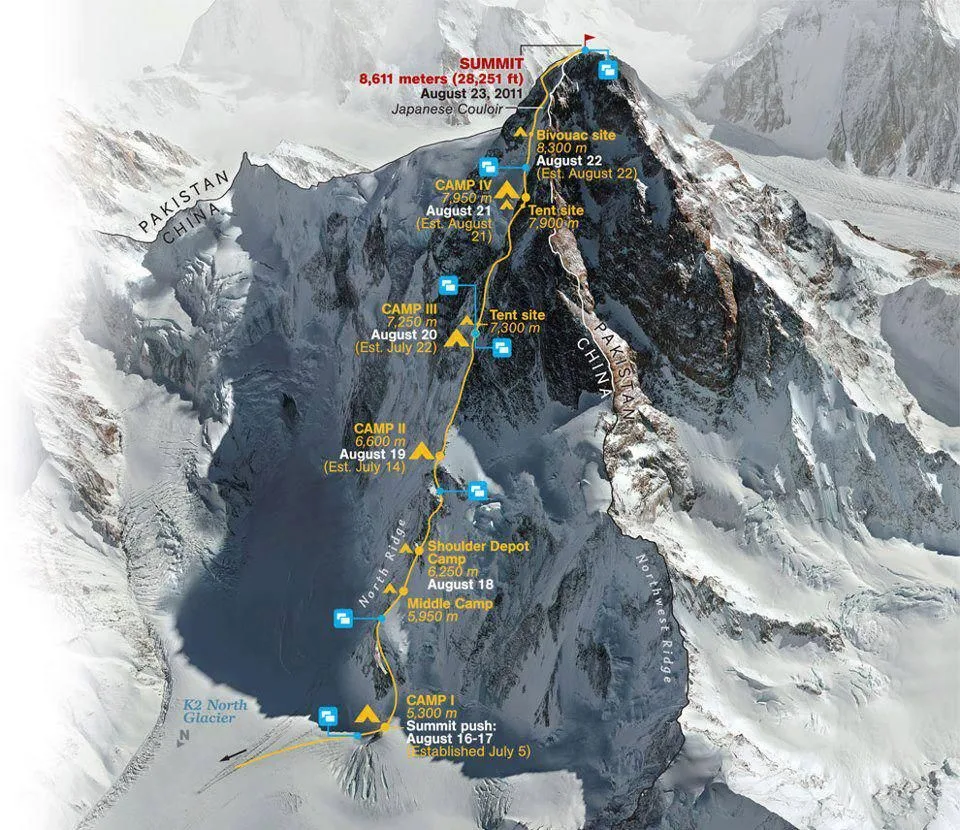
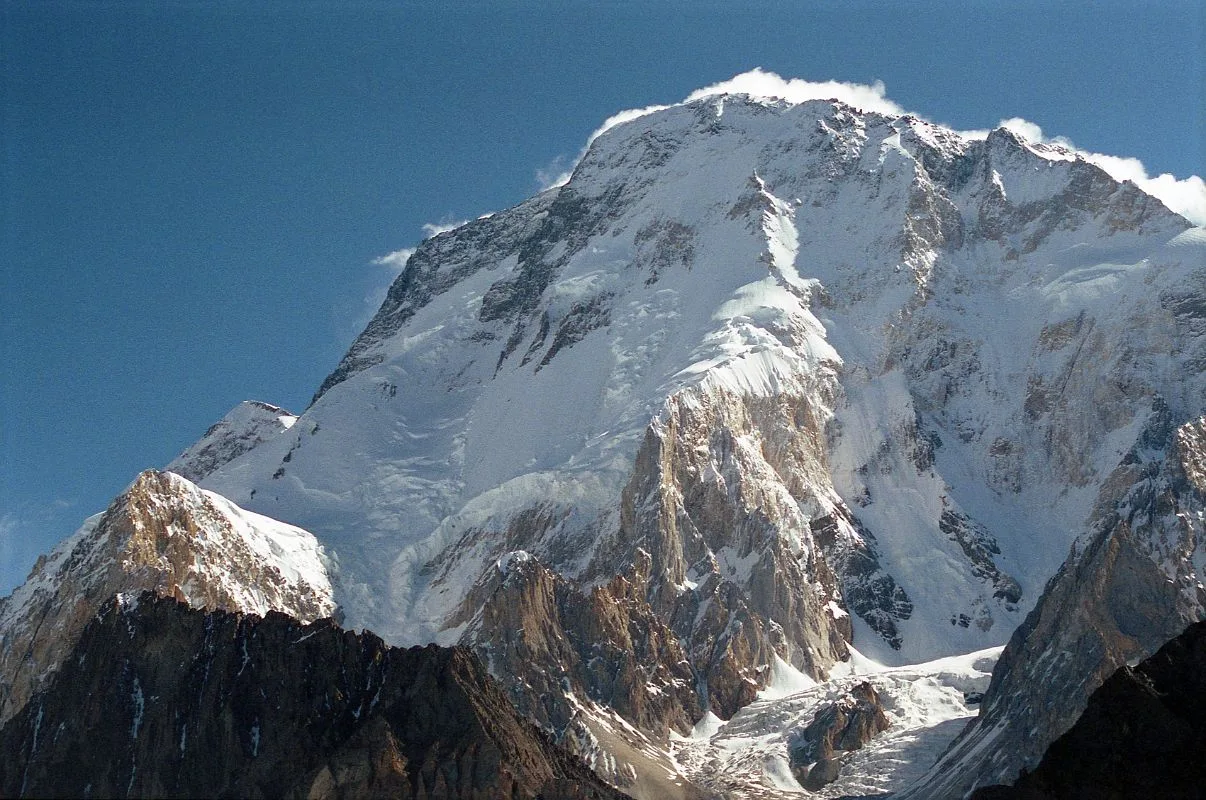
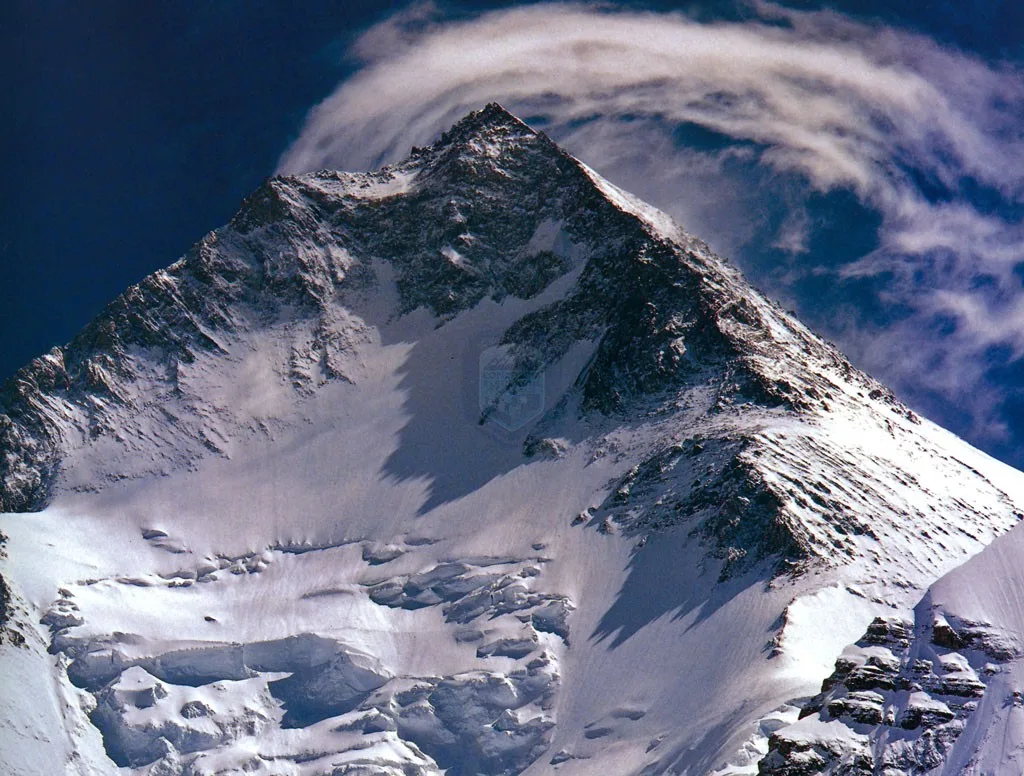
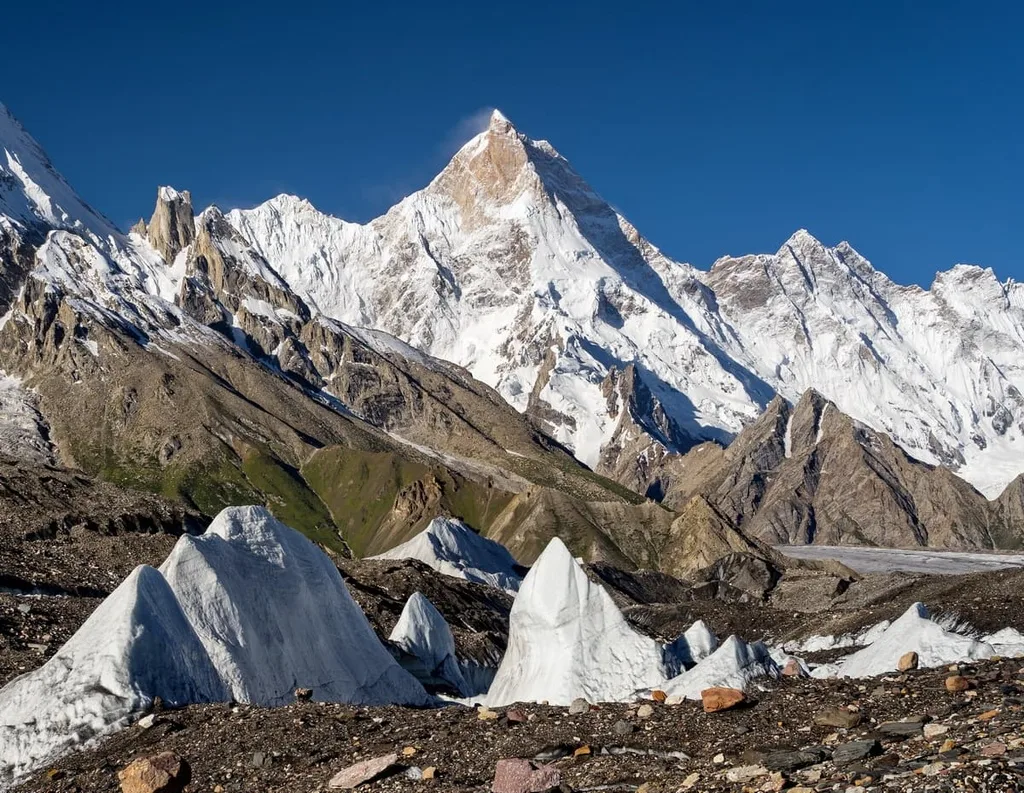
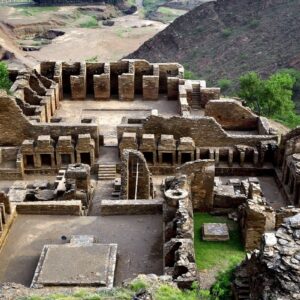
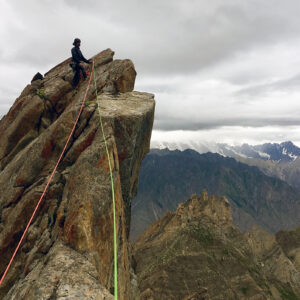
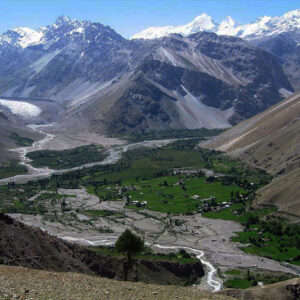
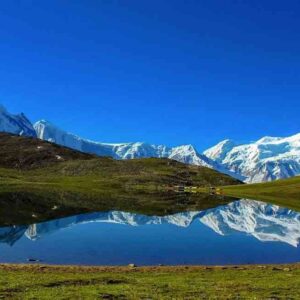

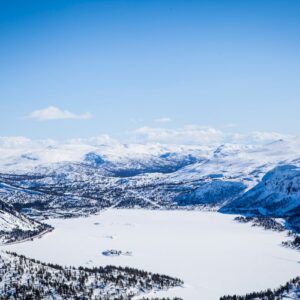
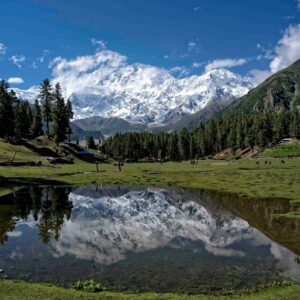
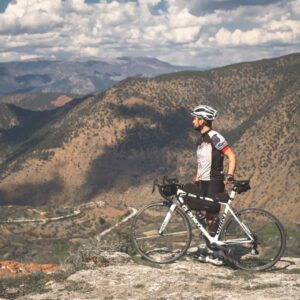
Reviews
There are no reviews yet.